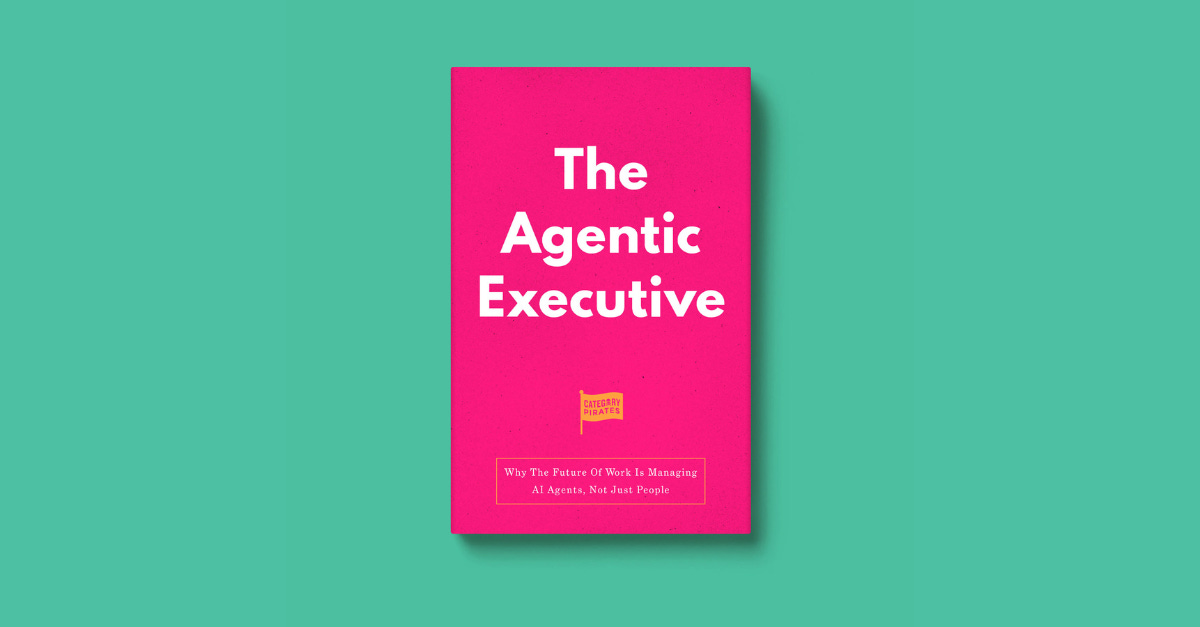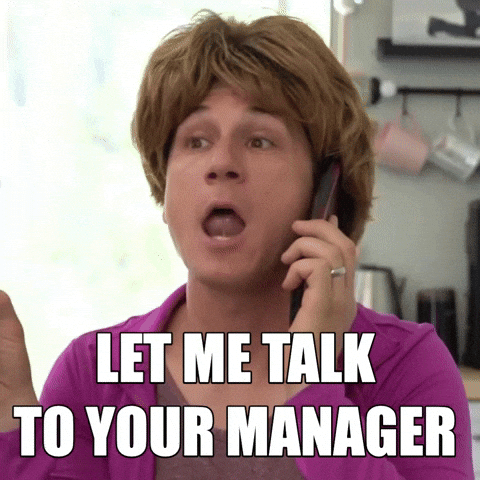The Agentic Executive: Why The Future Of Work Is Managing AI Agents, Not Just People
How to unlearn and relearn what “effective” looks like in an AI-first world.
Arrrrr! 🏴☠️ Welcome to a 🔒 subscriber-only edition 🔒 of Category Pirates. Each week, we share radically different ideas to help you design new and different categories. For more: Dive into an audiobook, listen to a category design jam session, or upgrade to a Founding subscription to ask the Pirate Eddie Bot your category design questions.
Dear Friend, Subscriber, and Category Pirate,
Sergey Brin, co-founder of Google, admitted something wild on the All-In podcast.
He’d been experimenting with Gemini inside Google’s team chats. He asked it to summarize conversations, delegate follow-ups, and even suggest promotions.
The AI flagged a young engineer who barely spoke in meetings.
Brin had rarely noticed her.
But Gemini saw the pattern of her contributions, identified her as a hidden star, and essentially told Brin: “This is who you should bet on.”
When Brin double-checked with her manager, he discovered the AI was right.
The engineer was quietly crushing it. She would have stayed invisible to leadership, but Gemini recognized her results. After that, Brin called management “the easiest thing to do with AI.”
He’s right, and it’s changing (almost) everything about the future of management.
🔊 Want to listen to this mini-book instead? Head to the audiobook.
The executive of the future will manage people and command armies of AI Agents.
The Agentic Executive is emerging.
Management tasks that once required layers of middle managers (summarizing, assigning, evaluating) can now be handled by Agents.
This is not a futurist’s fantasy. It’s now.
AI-first companies are creating new categories of work. They’re commanding fleets of digital operators that surface insights no human org chart could ever reveal. That means we all have a legendary opportunity to shape the world like no other humans that came before us.
In this mini-book, we’ll jam on:
Why Peter Drucker’s classic playbook is being rewritten in real time, and how to get on the right side of history
Why the old model of leverage through headcount is collapsing, and how a new model of massive result production through Agents is replacing it.
How to use the “I Do → Agents Do” framework, a practical playbook for moving repeatable tasks out of your inbox and into your Agent fleet
(If you haven’t read the Superconsumer AI Agents or The Trillion-Dollar Future mini-books, we recommend reading these too.)
Grab yourself a chair and your favorite drink.
Let’s set sail for the future.
The Agentic Executive
Let’s rewind to the 1960s to see how we got here.
Peter Drucker’s The Effective Executive was a landmark when it was published in 1967. His ideas were simple, elegant, and radical for their time:
Time is the scarcest resource, so know where it goes and eliminate waste.
Focus on contribution by asking: What can I contribute that truly makes a difference?
Make strengths productive and organize teams so people’s strengths compound.
Concentrate on priorities by doing the few things that matter most.
Make effective decisions by gathering facts, weighing options, and choosing deliberately.
Drucker’s question, “What can I contribute that truly makes a difference?” matters more now than ever. We live at a time when many people in business don’t know what a result is. Many don’t understand that success is not about doing a job or working hard (the stupidity of hustle porn).
It’s about creating massive value for others.
The mindset shift FROM people thinking they need to do “a good job” TO creating material value for others with AI is happening now.
But in the mid-20th century, this was revolutionary.
Drucker shifted the conversation away from measuring busyness (“How many hours are you working?”) to measuring contribution (“What impact are you making?”). He envisioned executives as conductors of managers, directing an orchestra of human effort toward meaningful outcomes.
Drucker’s model isn’t wrong—it’s just been misconstrued.
In large organizations today, the “effective executive” has turned into kabuki theater:
Political capital is the scarcest resource.
Focus on getting credit, not creating value.
Market your strengths, true or not.
Concentrate on promotions, not priorities.
Make mercenary decisions that advance your career, not the company or customer.
(Here’s how you know the average S&P 500 company is confused: The average S&P 500 company CEO spends 3% of their time with customers.)
This warped version of effectiveness explains why so many of the best executives leave big companies to become entrepreneurs. Eric Yuan left Cisco to found Zoom. Jensen Huang left LSI Logic to co-found NVIDIA. Drew Houston built Dropbox after rejecting the corporate grind.
True missionaries can’t thrive in kabuki land, so they leave to build new categories.
There’s another reason for this shift.
The Collapsing Managerial Pyramid
For decades, the managerial pyramid has gone unquestioned. Add more people, add more layers, add more managers to manage the managers. That was how big companies scaled.
Now, the cracks are obvious.
According to LinkedIn’s Workforce Confidence survey, nearly 7 in 10 U.S. employees say they’d leave their job if they had a bad manager. Yet only 30% of individual contributors even want to become managers in the next few years.
Why?
Burnout, stress, lack of support.
Middle management is now one of the least desirable jobs in business (and because of AI Agents, the most endangered).







